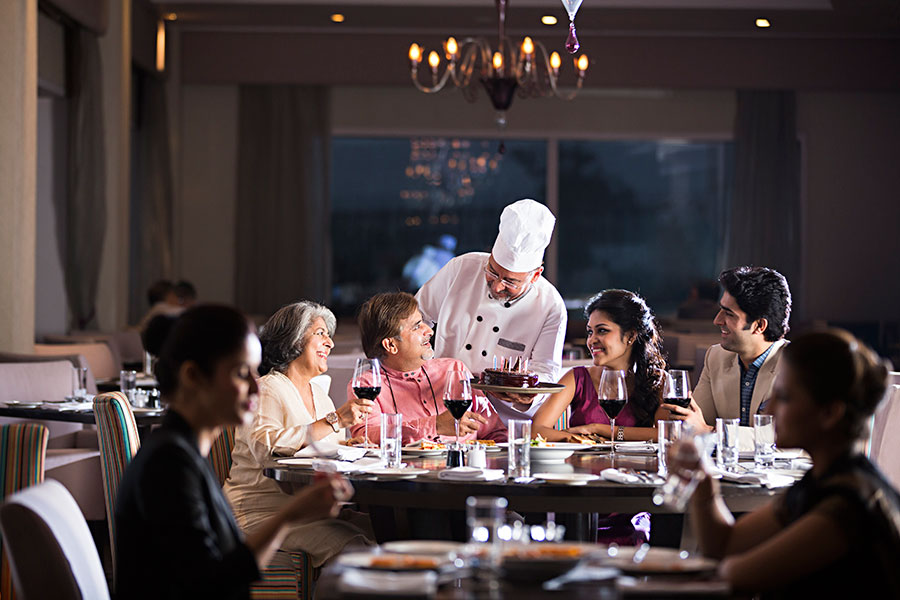HOW IT WORKS
Caterers

- Establishments primarily engaged in providing food services for events, parties, and gatherings.
Caterers are businesses that provide food and beverage services for events, parties, weddings, and other gatherings. They specialize in creating customized menus, preparing and serving food on-site, and ensuring a seamless dining experience for their clients and guests.
Key characteristics of catering businesses include flexibility in menu offerings, attention to detail in presentation and service, and the ability to accommodate dietary restrictions or preferences.
The target audience for caterers includes individuals or organizations hosting events such as weddings, corporate meetings, holiday parties, and more. They often seek out caterers to provide high-quality food and service to impress their guests and create a memorable experience.
Common products or services offered by caterers include buffet-style meals, plated dinners, hors d’oeuvres, desserts, and beverage services. They may also offer event planning and coordination services to help clients with all aspects of their event.
Typical business models for caterers involve a combination of pre-set menus and customized options based on client preferences. They may operate out of a dedicated kitchen space or offer on-site cooking services for events.
Notable trends and innovations within the catering industry include a focus on locally sourced and sustainable ingredients, unique presentation styles, and themed menus to create a memorable dining experience.
The unique value proposition of caterers lies in their ability to create customized menus and provide professional service to ensure a successful event. However, they may face challenges such as managing food costs, coordinating logistics for large events, and dealing with last-minute changes or requests from clients.
Overall, caterers play a crucial role in the hospitality industry by providing delicious food and exceptional service to help clients host successful and memorable events.
Initial Stage: In the catering business, the operational cycle begins with identifying market opportunities and consumer needs. This involves conducting market research to understand the preferences and requirements of potential clients, as well as analyzing market trends and competition.
Product Formulation: Once the market opportunities are identified, the catering business formulates its products and services to meet these demands. This may involve creating unique menu offerings, developing specialized catering packages, and focusing on high-quality ingredients and presentation. The business may also emphasize any unique features or value propositions, such as organic or locally sourced ingredients, customizable menus, or themed events.
Marketing and Promotion: The catering business utilizes various marketing and promotional strategies to reach target audiences and generate interest. This may include digital marketing campaigns, social media promotions, partnerships with event planners or venues, participation in food fairs or festivals, and word-of-mouth referrals. The business may also highlight its unique offerings, excellent customer service, and competitive pricing to attract clients.
Sales and Distribution: In terms of sales and distribution, the catering business may utilize multiple channels to reach customers. This could involve taking orders online or over the phone, collaborating with event organizers or corporate clients, attending food tastings or samplings, and providing catering services for a variety of events. Customer interactions are crucial during the sales process, as building relationships and understanding client needs are key to securing bookings and repeat business.
Post-Sale Services: After the catering services are delivered, the business focuses on post-sale services and support to ensure customer satisfaction and loyalty. This may involve following up with clients for feedback, addressing any issues or concerns promptly, offering discounts or promotions for future bookings, and maintaining open communication channels for ongoing support. Providing exceptional post-sale services can lead to positive reviews, referrals, and long-term relationships with clients.
Continuous Improvement: To stay competitive and adapt to market feedback, the catering business implements measures for continuous improvement. This could involve gathering feedback from clients and staff, analyzing performance metrics and customer satisfaction scores, updating menus and offerings based on trends and preferences, training staff on new techniques or recipes, and investing in technology or equipment upgrades. By continuously seeking ways to improve and evolve, the catering business can stay ahead of the competition and meet the changing needs of its target market.
Catering businesses face challenges in resource management, communication & collaboration, process inefficiency, inventory management, quality control, technology integration, data management, and risk management. These hurdles can impact customer satisfaction, profitability, and overall success. Solutions include implementing software for inventory tracking, improving communication channels, training staff on quality standards, investing in technology for efficient operations, analyzing data to make informed decisions, and creating risk management plans to mitigate potential issues. By addressing these challenges effectively, caterers can enhance their daily operations and achieve long-term success in the industry.
-
Webspad transformed our catering business by streamlining our operations and improving our communication and collaboration processes. Before using Webspad, we struggled with managing our inventory efficiently, which often led to last-minute rushes and mistakes in fulfilling orders. Webspad’s inventory tracking software helped us keep track of our supplies in real-time, reducing waste and ensuring that we always have the ingredients we need on hand. This improvement in resource management not only saved us time but also improved our overall profitability. Thanks to Webspad, our catering business is now more organized, efficient, and successful in meeting our clients’ needs.
Caterers Merchant Tweet / X

